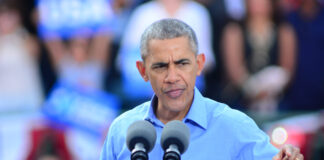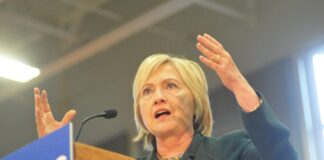
President Donald Trump has made no secret of his irritation with Federal Reserve Chairman Jerome Powell, especially as the latter has refrained from lowering interest rates.
The rationale underlying holding interest rates steady includes the persistence of inflation, with recent CPI data roiling the stock markets.
Lowering interest rates may well spur investment, but they may also result in other deleterious economic impacts, which is why the Federal Reserve has justified its cautionary approach.
Now, however, Trump has renewed public attention to the fact that he may well oust Powell after all, despite the fact that such an action would certainly have a substantial impact on the stock market, alongside the broader American economy in general.
Trump had previously threatened to remove Powell from his position, but such threats did not appear nearly as serious at the time.
Now, things are different … and, as detailed by The Hill, several Republicans are cautioning Trump against any sudden moves against Powell.
An especially edgy GOP senator, John Kennedy, warns that the ousting of Powell could lead to a hyperinflationary situation, as witness in NATO member Turkey.
“I do not believe a president, any president, has the authority to fire the Federal Reserve chair … I believe strongly in the independence of the Federal Reserve. Some countries in the world don’t have independent central banks. Ask Turkey how that’s been working out for them. At one point Turkey had inflation at 30 percent,” Kennedy asserted.
The senator also noted that the stock markets would immediately crash, effectively decimating the savings of many Americans, alongside the value of myriad pension plans and other retirement mediums.
“If you cut interest rates right now by 300 basis points or 3 percent it would crash the stock market, you would see bond prices take a journey to the center of the Earth, you would see the 10-year Treasury go up at least 50, probably 100 basis points, which makes it harder to issue new Treasurys,” Kennedy added.
Worryingly, all the economic mishaps would result in taxpayers forking out additional “hundreds of billions of dollars” to service national debt.
Senator Thom Tillis offered similar warnings in his own commentary, noting the adverse impact that would befall the national economy.
“It would be a colossal mistake,” Tillis warned, adding that interest rates would likely remain high due to the fact that the Federal Reserve board operates via consensus … which means that the perspectives of twelve voting members also factor into interest rate decisions.
“Anybody out there in voter-land who thinks that firing Jay Powell will change the policy outcomes … I don’t think it will. What it will do is send a shock wave through the markets about maybe there’s a real threat to the independence of the Fed. That will create second- and third-order effects that none of us who track markets want to see,” Tillis continued.
Senator Mike Rounds adopted a longer-term perspective, noting that the independence of the Federal Reserve serves as a potential bellweather for stock market investments in the future.
“I think, long term, the markets watch very carefully the independence of the Federal Reserve … If you’re challenging the independence of the Federal Reserve Board, I think that would send shock waves through the market,” Rounds mused.
Whether or not such shock waves will imminently emerge remain unclear at the time of this writing … though Powell’s position is certainly precarious.
Author: Jane Jones



